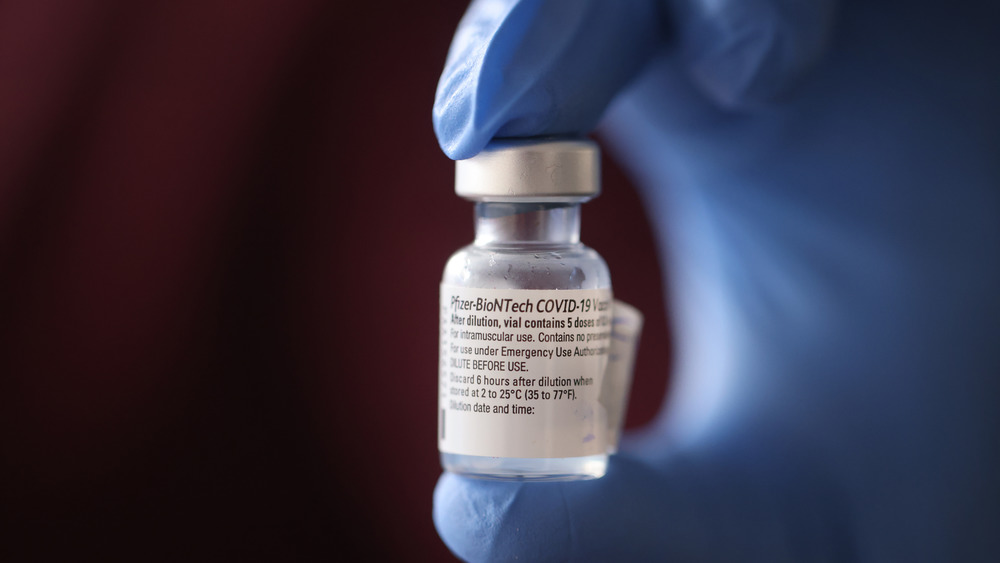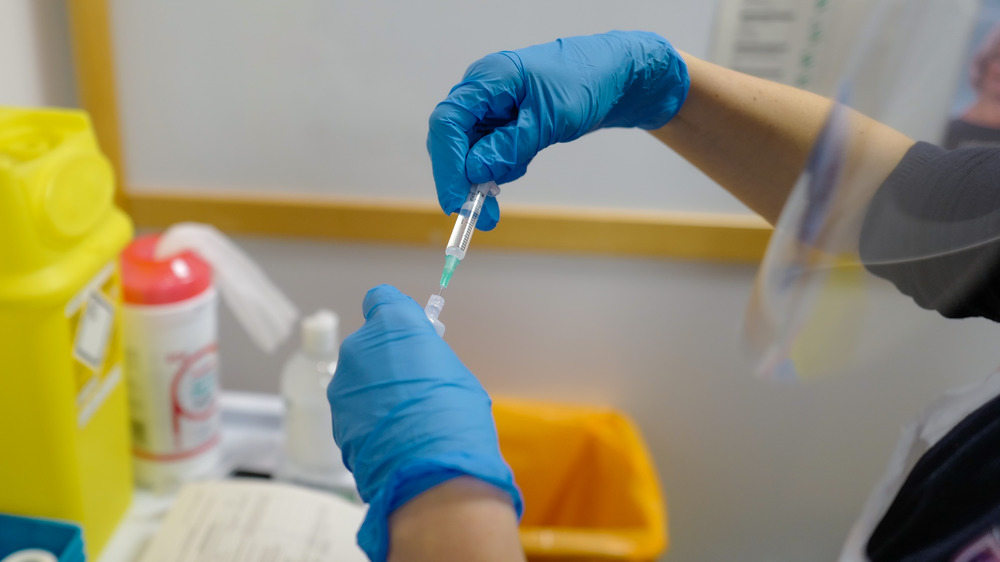What You Should Know About The COVID-19 Vaccine If You Have Allergies
There are many reasons to be excited about this small vial and what it contains. It offers the promise of reuniting friends and family, opening borders, restarting international travel, bringing restaurants and bars back to life. But before your rush to take the COVID-19 vaccine, health experts say you might want to consult your doctor, particularly if you have a history of allergies. Because while the vaccine may have passed a stringent safety review involving tens of thousands of volunteers, it has also triggered a severe allergic reaction in at least four healthcare workers who have been vaccinated in both the U.S. and in Britain, where the Pfizer/BioNTech vaccine was first used (via The Washington Post).
Stephen Powis, national medical director for NHS England noted: "As is common with new vaccines the MHRA [Medicines and Healthcare products Regulatory Agency] have advised on a precautionary basis that people with a significant history of allergic reactions do not receive this vaccination after two people with a history of significant allergic reactions responded adversely." Both healthcare workers were only two of thousands who were inoculated last week — and both have since recovered (via CNN).
Several incidents of a reaction to the COVID-19 vaccine have been recorded
The allergic reaction, also known as anaphylaxis, can happen between seconds to minutes after you are exposed to something you are allergic to. It might be triggered by peanuts for people with nut allergies, or bee stings for those who are allergic to insect bites. The Mayo Clinic says anaphylaxis gets your body to release chemicals that cause you to go into shock. Your blood pressure drops and you might have difficulty breathing. When you have anaphylaxis, you could also get a skin rash and experience nausea and vomiting.
Two other incidents of anaphylaxis have also been recorded in Alaska, whose allergic reactions came just minutes after two healthcare workers received their shots. One was moved to an intensive care unit for observation, the other was released after being given epinephrine, Pepcid, and Benadryl. Both have said they do not want their experiences to negatively affect the judgements of whose who are waiting in line for their jabs (via The New York Times).
The FDA says that safety checks are working
FDA vaccine expert Doran Fink says these reactions are a reminder that there is a need for vigilance, particularly during the early days of the campaign. He also said it was a sign that the safety checks that they put in place to monitor the vaccine actually work. "We learned of these cases through established safety surveillance systems that worked exactly as designed, and FDA is coordinating with the CDC to further investigate the cases in the U.S., and to communicate our findings in a timely manner," Fink tells The Washington Post.
Medical experts say the reactions aren't a sign that new restrictions on the use of the Pfizer-BioNTech shot need to be put in place. Still, they are looking to understand how the allergic reactions took place. Health experts like Dr. Anthony Fauci are also warning those who have had Guillain-Barre syndrome against getting the COVID-19 shot. The illness, also known as GBS, is very rare, damages the nerves and can sometimes bring paralysis — and it is a reaction that has been linked to the flu vaccine. Doctors are also cautioning people with compromised immune systems against rushing to take the vaccine. If you have allergies and are in line to get the vaccine, you'll need to make sure that the facility where they get their shot is equipped to handle a severe allergic reaction (via Today).


